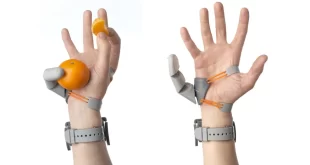About the Project
Supervisory Team: Dr Srinandan Dasmahapatra
Project description: This project is part of the EPSRC Centre for Doctoral Training in Quantum Technology Engineering at the University of Southampton. In addition to the research project outlined below you will receive substantial training in scientific, technical, and commercial skills.
Recent research objectives in noisy intermediate-scale quantum (NISQ) algorithms seek to exploit hard-won gains in quantum hardware developments to access computational results that challenge classical computers. Variational quantum algorithms (VQA) are a family of methods that optimise the parameterisation of quantum circuits to approximate expectation values of properties measured on quantum states. The expressive power of these parameterised circuits in VQA depends on the ansätze designed for a particular problem. In addition to expressivity, limitations on error-correction in NISQ hardware imply the amplification of errors with the depth of quantum circuits, further constraining the design space. Machine learning (ML) methods are being developed to navigate this design space using hybrid methods, and this will be the focus of this project. ML methods that operate by reducing an appropriately defined loss function by gradient descent are also generically known to encounter a ‘barren plateaus’ problem which hinders access to the parameterised space, prompting a further reconsideration of the circuit ansatz. A family of measurement based quantum algorithms have also been proposed that start with an entangled cluster state and well-chosen single qubit measurements alter the state of the network, propagating information via teleportation across the cluster. These measurement based variational quantum algorithms offer a different window into the space of states defining the computational state, as well as the compiled set of qubits that come with the noisy profiles that the neural network based algorithms will seek to ameliorate, within the constraints over the design space. Classical processing of information shared across nodes of a graph have been successful in graph neural network architectures; this project will explore the design of a suitable graph quantum neural network for measurement based variational quantum algorithms.
If you are interested, please contact the supervisor for more information: Srinandan Dasmahapatra sd@ecs.soton.ac.uk
Entry Requirements
A very good undergraduate degree (at least a UK 2:1 honours degree, or its international equivalent).
Closing date: 31 August 2024.
Applications will be considered in the order that they are received, the position will be considered filled when a suitable candidate has been identified.
Funding: We offer a range of funding opportunities for both UK and international students, including Bursaries and Scholarships. For more information please visit PhD Scholarships | Doctoral College | University of Southampton Funding will be awarded on a rolling basis, so apply early for the best opportunity to be considered.
How To Apply
Apply online: HERE Select programme type (Research), Faculty of Engineering and Physical Sciences, next page select “PhD Quantum Tech Eng”. In Section 2 of the application form you should insert the name of the supervisor.
Applications should include:
Curriculum Vitae
Two reference letters
Degree Transcripts/Certificates to date
For further information please contact: feps-pgr-apply@soton.ac.uk
Caractéristiques de l'emploi
| Catégorie emploi | Doctorat |
 Etudes Non Stop Etudes Non Stop
Etudes Non Stop Etudes Non Stop



